Iran Update, April 16, 2025
Apr 16, 2025 - ISW Press
Iran is unlikely to accept zero uranium enrichment and full dismantlement of its nuclear program

Iran is unlikely to accept zero uranium enrichment and full dismantlement of its nuclear program

Iranian Supreme Leader Ali Khamenei may calculate that engaging in nuclear negotiations with the United States is the best option for preserving the Iranian regime's stability. Khamenei discussed the United States-Iran nuclear talks and economic priorities during a meeting with senior Iranian government officials on April 15. Khamenei called for mitigating the impact of international sanctions on the Iranian economy while simultaneously expressing support for nuclear talks with the United States.

Iran and the United States held nuclear talks in Muscat, Oman, on April 12. The Iranian delegation, which was led by Foreign Affairs Minister Abbas Araghchi, presented Iran’s demands and red lines to the US delegation, which was led by US Special Envoy to the Middle East Steve Witkoff.

Iran will likely attempt to use nuclear negotiations with the United States to delay a potential strike on its nuclear facilities and the imposition of snapback sanctions.

A Senior Iranian official threatened to reduce cooperation with the International Atomic Energy Agency (IAEA) if external threats against Iran continue. Iranian Supreme Leader Adviser Ali Shamkhani stated on April 10 that Iran could expel IAEA inspectors, halt cooperation with the agency, or move enriched uranium to “safe and unknown locations” if external threats and military pressure continue.
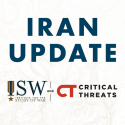
US Central Command (CENTCOM) conducted at least 10 airstrikes on April 8 targeting a Houthi military base on Mount Nuqum on the eastern outskirts of Sanaa City. The strike reportedly injured Houthi President Mahdi al Mashat and a senior Houthi intelligence officer.
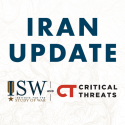
Iran agreed to “high-level” talks with the United States in Oman on April 12, but it is very unlikely to agree to some of the reported US demands. Iranian Foreign Affairs Minister Abbas Araghchi and US Special Envoy to the Middle East Steve Witkoff will lead the negotiations. US President Donald Trump stated on April 7 that the US and Iran will hold “direct” talks on April 12, while Supreme Leader Ali Khamenei rejected direct negotiations multiple times in recent months.
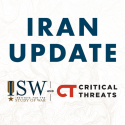
Regional diplomatic sources told CNN on April 6 that the Yemeni government is preparing for a ground offensive against the Houthis. The offensive would reportedly consist of advances from the south and east and along the western Yemeni coast to take Hudaydah.
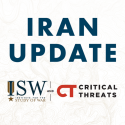
US Central Command (CENTCOM) is conducting a military operation in Yemen that aims to render the Houthis unable or unwilling to continue attacks that threaten US ships and freedom of navigation in the Red Sea. This does not imply that CENTCOM must destroy all Houthi missiles, drones, and launchers in Yemen.
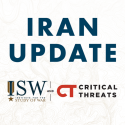
Iran is continuing to try to bolster its air defenses in preparation for a potential US or Israeli strike on Iran. Iran has built a new Ghadir phased-array radar in West Azerbaijan Province in northwestern Iran in recent months, according to commercially available satellite imagery. An open-source analyst reported on April 2 that Iran also recently built two Ghadir radars in southern Iran near the Persian Gulf and the Strait of Hormuz